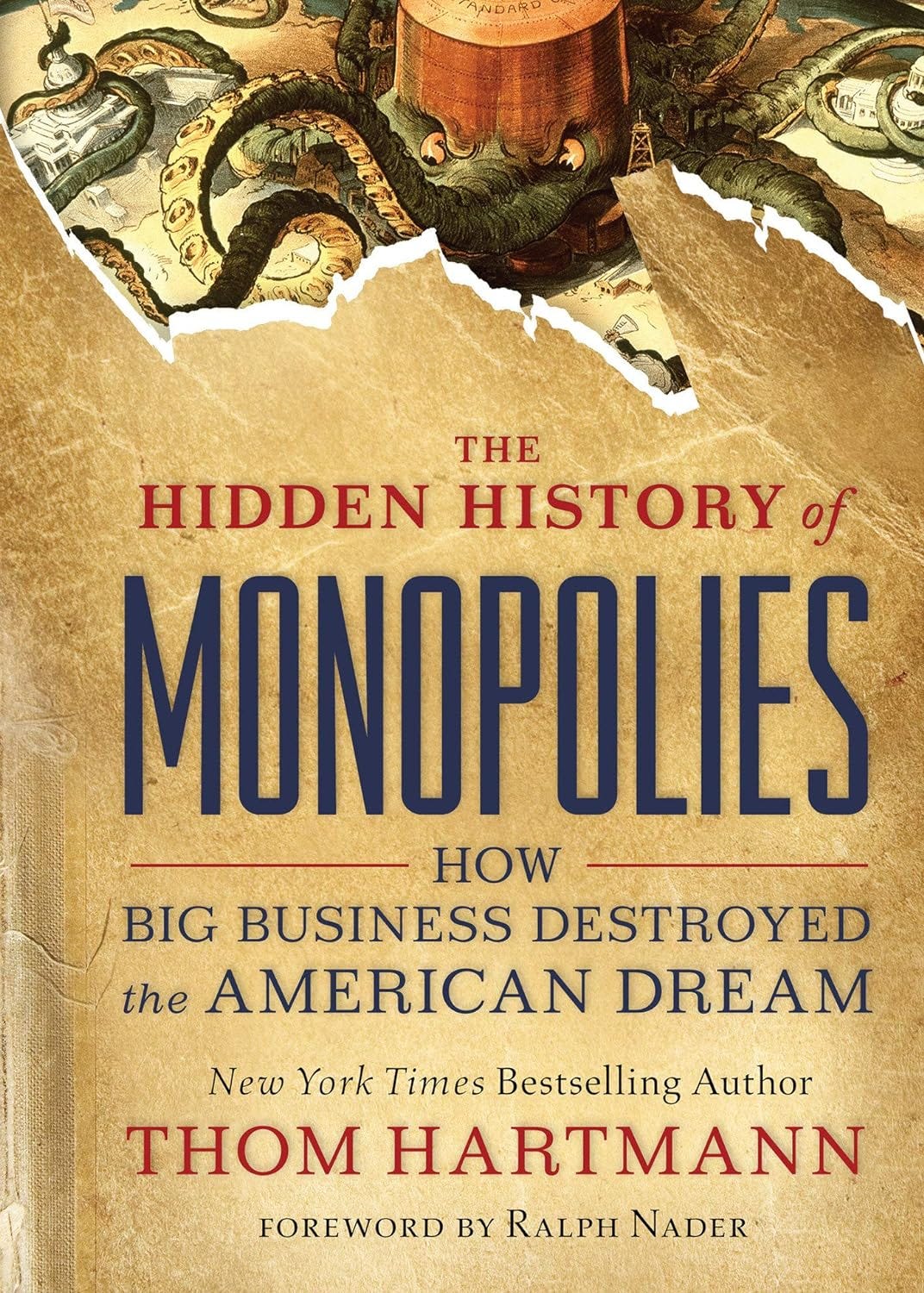Monopoly Is Anti-business
The Hidden History of Monopolies: How Big Business Destroyed the American Dream

Monopoly Is Anti-business
No matter how much Robert Bork and his colleagues say they’re “pro-business,” what they’re actually advocating is helpful only to a very small class of very large businesses and the very wealthy people who own them or their stock. Small and medium-sized businesses, entrepreneurs, workers, communities, and start-ups are badly damaged by the focus of antitrust law being kept entirely on prices that consumers pay. Bork—and indeed his entire class of Chicago School economists—was always focused on the interests of straight, white, wealthy men to the exclusion of women, communities of color, and people who were not the “makers” and “job creators” of their lore.
Consistent with that focus, whether applied to micro- or macroeconomics, to regulating pollution or monopolies, to their complaints about “anti-war hippies” “urban dwellers,” or “women’s libbers,” Bork and his friends managed to insert into the political and economic bloodstream of our nation the cancer-causing virus of “greed is good” ideology. Its impact has been devastating.
In the decades prior to Reagan adopting Bork’s pseudo-religion of “freedom” for the biggest corporations and richest people, the working class was growing in economic and political power just as fast as the very wealthy. Post-Reagan, their power was stripped away, and trillions of dollars of working-class wealth have been redistributed to the top 1%.
Prior to Reagan adopting Bork’s notion of antitrust, there were twice as many public corporations as today, and local communities were rich with locally and family-owned businesses. Post-Reagan American towns and cities are frighteningly homogeneous, all their commercial activity having been subsumed by a handful of large national brands from groceries to gasoline to hotels to restaurants to retail.
Even niche businesses like investment advisers, car repair shops, insurance companies, hardware stores, and flower shops have been wiped out by giant national firms.
Although Reagan sold us Bork’s ideas as “pro-business,” in fact they were (and are) radically anti-business. By damaging the middle class, they’ve eviscerated what economists call “aggregate demand,” the wage-driven purchases made by working-class people that drive the economy, leading to a flattening of GDP growth decade over decade.
By damaging the ability of workers to unionize, Chicago School theories have torn apart communities of laborers who once worked hand-in-glove with business to achieve mutual success.
By allowing the virtual monopolization of industry after industry, Bork’s theories have decimated innovation and competition.
At their core, the way that America and, sadly, much of the rest of the world have adopted Chicago School theories has been deeply and profoundly anti-business and has badly damaged America’s small businesses and middle class.


